Smart meters
Smart meters, a building block for the digitisation of the grid
A smart meter provides detailed information on consumption in order to reduce electricity bills and also increase knowledge about the status of the electricity grid, which improves its performance and the quality of service for customers. As part of the evolution towards a smart grid, Iberdrola has installed and continues to install millions of these devices in all the countries in which it operates distribution networks.
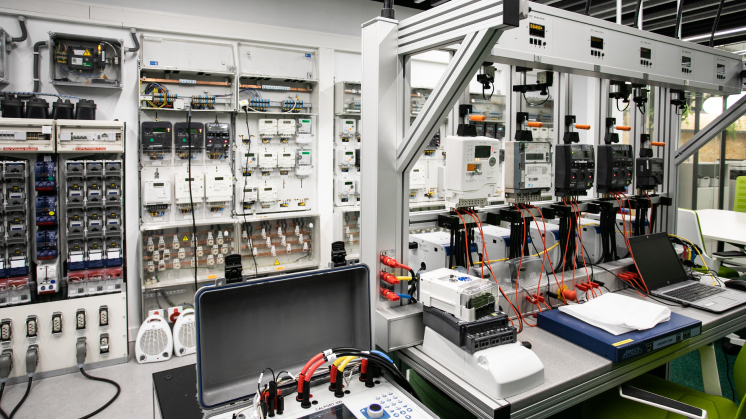
What is a smart meter and what is it for
A smart meter is an essential part of knowing the status of the electricity grid, which allows for improving the performance and quality of service for customers. It also enables costumers to see how their consumption habits affect their electricity bills and, in this way, to manage consumption by choosing the most suitable tariff for their needs and reducing the amount through energy efficiency measures.
Likewise, smart meters are key to increasing the uptake of distributed electricity generation, which, in addition to allowing customers to generate their own energy, is key to the strategy to reduce the carbon footprint and combat global warming.
Characteristics of smart meters
The meter traditionally used to measure energy consumption had functions that were essentially measuring and storing the total accumulated value. The shift of grids towards smart grids involves, among other things, replacing traditional meters with smart meters, making it easier for customers to enjoy improved features and new services.
Smart meters incorporate a power-limiting circuit breaker, which means it does not have to be installed inside the customer's own electrical panel, improving the response and capacity to act. They also have a telecommunications interface for remote communication between the central systems and the meter, allowing remote reading and operations, such as sending new tariff tables, modifying the parameters associated with the contracts and the configuration of the meter itself, as well as the operation of the internal switch.
The above-mentioned significant technological developments enable smart meters to perform new functions:
In short, the characteristics of smart meters make it possible to provide a superior service to customers, improving the quality of supply and offering a series of new features so that the customer is able to control and optimise their electricity consumption.
The world and smart meters
In recent years, the smart meter has gradually established itself in the market, mainly because consumers are increasingly inclined to look for a smart energy-saving system. According to data from the US Energy Information Administration (EIA), global electricity generation is expected to grow to approximately 14.7 terawatts by 2050. Given this situation, there is a demand for optimising energy distribution networks.
Although grid modernisation initiatives started in the 2000s, more than 20 years later they still have not reached all parts of the world equally. Market leadership in smart metering is currently held by Europe, the United States and the Asia-Pacific region. Other parts of the world such as Latin America, Africa and South Asia have lagged behind and have been slower to adopt smart metering technologies.
In the case of Europe, legislation has allowed smart meters to be installed in most homes, which has led to consumers having much more information about the product. Governments' commitment to more sustainable solutions in the three areas that lead the ranking have gradually allowed these types of technologies and devices to grow considerably in recent years.
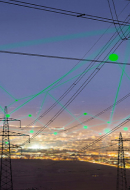
Innovation in networks
Iberdrola seeks to improve customer service, maintaining and expanding the smart grid model and grid digitisation.
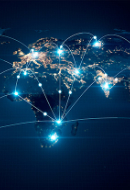
Progress on the smart grid
Telecommunications trends and applications in the smart grid.
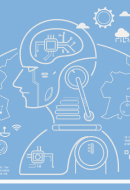
What is Artificial Intelligence?
Its applications in multiple sectors have prompted the European Union to develop its own Robotics Laws.
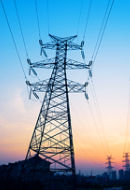
Smart grids
A key technological leap in our commitment to the energy transition.
The future of smart meters
If the present of smart meters is promising, their future is even brighter. The new generations of meters will have additional features, including:
- Ability to provide information to customers in near real time (around tens of seconds), either through central systems or through a communications channel with an In-home Display, for example.
- Increase in measured network parameters and measurement frequency, improving LV network management: quarter-hour curves which, among other things, allow for improved planning processes, additional events, voltage curves, etc.
- Distributed processing capability (edge computing), capability, processing the measurement locally in much greater detail and enabling additional use cases, including: detection of distributed generation or electric vehicles, line and meter phase identification, load disaggregation, demand management, etc.
The benefits of smart meters and their impact on customers
These benefits are perceived by customers.
 SEE INFOGRAPHIC: The benefits of smart meters and their impact on customers [PDF] External link, opens in new window.
SEE INFOGRAPHIC: The benefits of smart meters and their impact on customers [PDF] External link, opens in new window.
In short, the smart meter is at the heart of the transformation of the electricity grid into a smart grid. The data collected from these devices is enabling the use of other digital technologies, such as edge computing, cloud computing, artificial intelligence and big data, for network operation and exploitation, therefore improving the customer experience.





















